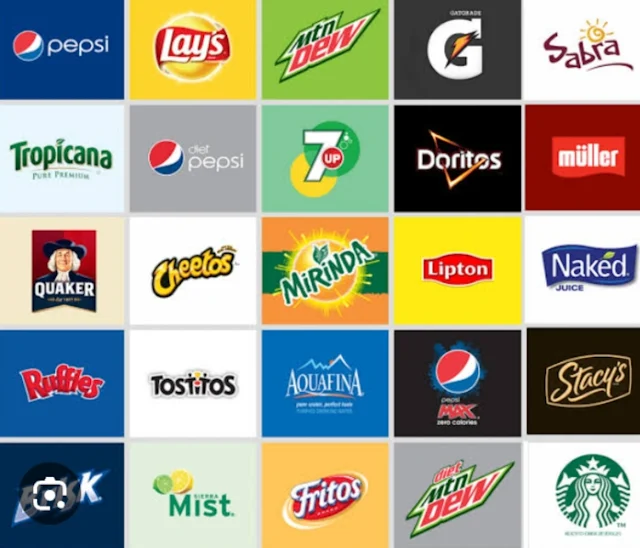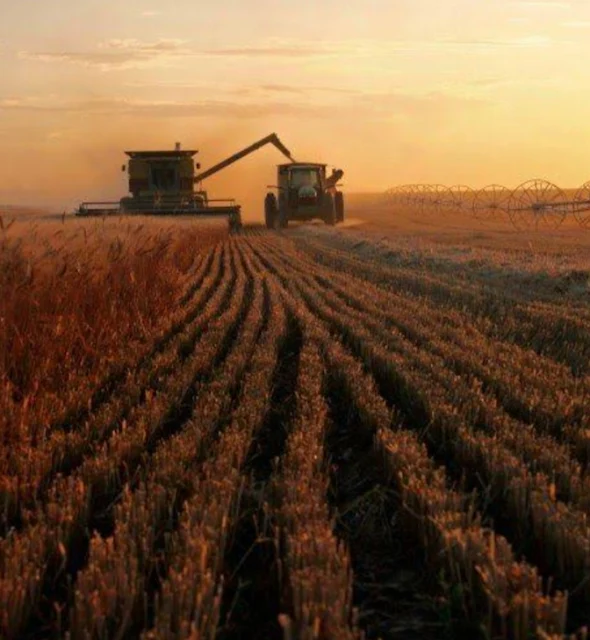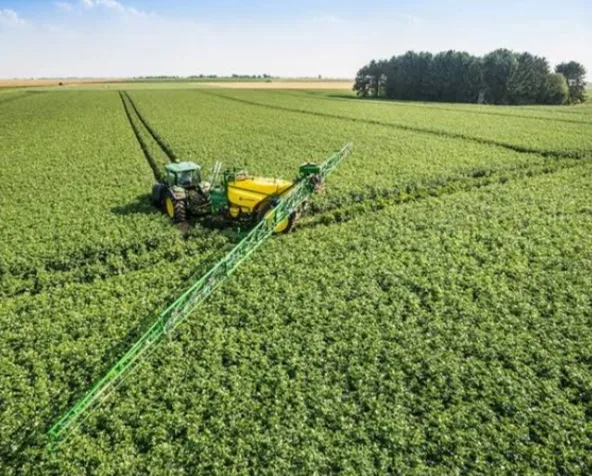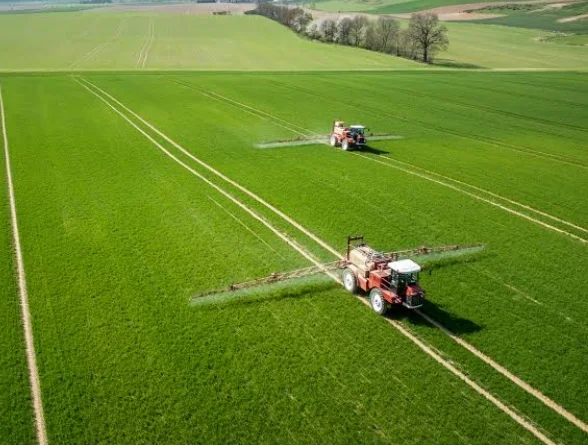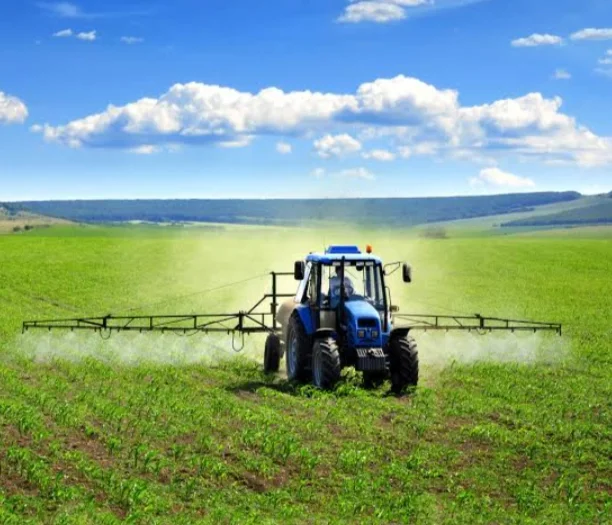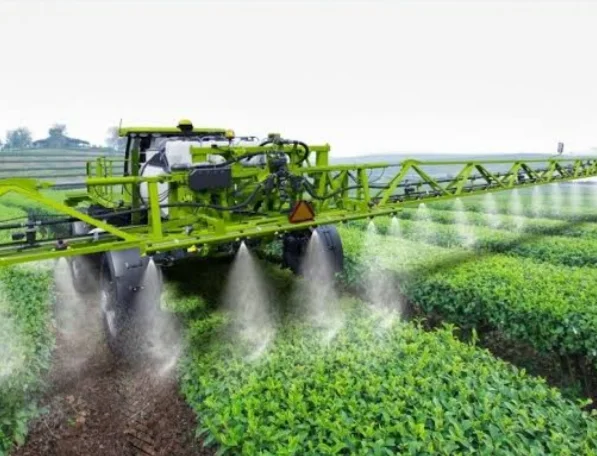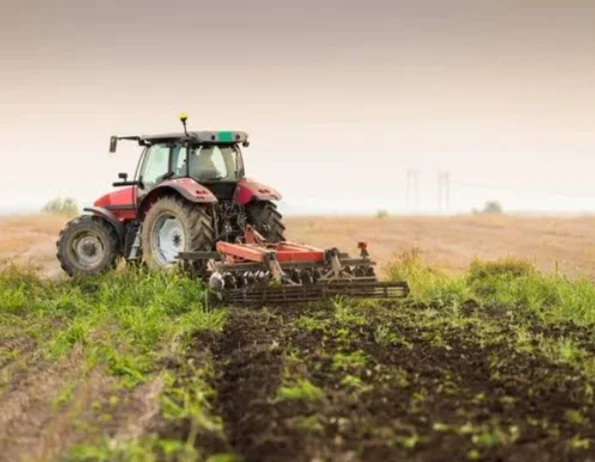Introduction Top Modern Agriculture Company
The agricultural landscape is undergoing a dramatic transformation, driven by cutting-edge technologies, a focus on sustainability, and data-driven decision-making.
From established giants to nimble startups, a diverse range of companies are redefining how we grow and source our food. Here's a glimpse into 29 of the leading players making waves in the agricultural industry today:
Table of Content
29 Top Modern Agriculture Companies Shaping the Future of Food
▶️ Global Leaders Modern Agriculture Company
- Cargill
- Archer Daniels Midland (ADM)
- John Deere
- Bayer
- BASF
- Syngenta
▶️ AgTech Innovators Company
- Indigo Agriculture
- Plenty
- Impossible Foods
- AeroFarms
- Blue River Technology
- Carbon Robotics
▶️ Sustainability Champions Company
- The Crop Project
- Patagonia Provisions
- AppHarvest
- Rodale Institute
▶️ Other Notable Players:
- DowDuPont
- Monsanto
- Land O'Lakes
- CH Robinson Worldwide
- McDonough Farms
- Fairway Markets
- Whole Foods Market
- Urban Outfitters
- Smallhold Farms
- Equibiome
- Apeel Sciences
- Farmers Business Network
- Bowery Farming
▶️ Modern Agriculture Technology
▶️ Future of the Modern Agriculture
In this article, we'll delve into the world of top modern agriculture companies, where innovation is as essential as sunshine and water. We'll meet seasoned players like Cargill and John Deere, wielding decades of experience alongside cutting-edge technology. Alongside them stand nimble startups like Indigo Agriculture and Plenty, their agile minds brimming with fresh ideas to revolutionize how we grow and source food.
▶️ Definition of the Modern Agriculture
Modern agriculture is a broad term encompassing various approaches and innovations that aim to improve efficiency, sustainability, and food security in the face of growing challenges like climate change and population increase.
Here are some key characteristics of the Modern Agriculture
Technology-driven:
- Precision agriculture: Using data, sensors, and automation to optimize resource use, reduce waste, and increase yields.
- AgTech: Startups and established companies developing solutions like robots, drones, and data-driven tools for various agricultural tasks.
- Vertical farming: Growing crops indoors in controlled environments, maximizing land use and minimizing resource consumption.
Sustainability-focused:
- Regenerative agriculture: Practices that improve soil health, biodiversity, and water quality.
- Organic farming: Avoiding synthetic pesticides and fertilizers, focusing on natural methods.
- Reduced environmental impact: Minimizing water and energy use, greenhouse gas emissions, and pollution.
Increased efficiency:
- Automation: Utilizing robots and machinery for tasks like planting, harvesting, and weeding.
- Data-driven decision making: Using data analytics to optimize crop selection, resource allocation, and pest management.
- Improved logistics and supply chains: Efficiently moving and storing agricultural products to reduce waste and spoilage.
Global perspective:
- Addressing food security challenges for a growing population.
- Adapting to climate change and its impact on agricultural production.
- Promoting fair trade practices and sustainable livelihoods for farmers.
It's important to note that modern agriculture is not a single, monolithic approach. It encompasses a diverse range of practices and technologies, with varying levels of adoption and impact depending on the specific context. Some companies and practices prioritize efficiency and yield, while others focus on sustainability and environmental responsibility.
Modern agriculture boasts several advantages over traditional methods, addressing many of the challenges facing our food system today. Here are some key benefits:
Increased Efficiency and Productivity:
- Precision agriculture: Optimizes resource use by precisely targeting specific areas of a field, reducing waste and boosting yields.
- Automation: Robots and machinery handle repetitive tasks, freeing up labor and increasing efficiency.
- Improved plant varieties: Genetically modified and cross-bred crops often offer higher yields, disease resistance, and improved stress tolerance.
Greater Sustainability:
- Regenerative practices: Promote soil health, biodiversity, and water quality, leading to a more sustainable future for agriculture.
- Reduced environmental impact: Minimizes water and energy use, greenhouse gas emissions, and pollution compared to traditional methods.
- Vertical farming: Enables food production closer to consumers, reducing transportation emissions and resource consumption.
Enhanced Food Security:
- Increased production: Helps meet the growing demand for food with a potentially smaller land footprint.
- Reduced crop losses: Improved pest and disease management helps ensure better harvests and less food waste.
- More resilient crops: Varieties developed for harsher conditions improve food security in vulnerable regions impacted by climate change.
Improved Food Quality and Safety:
- Advanced monitoring and testing: Ensures food safety and traceability throughout the supply chain.
- Controlled environments: Vertical farming and greenhouses offer consistent quality and reduced contamination risks.
- Precision fertilization: Provides crops with precise nutrient needs, potentially improving nutritional value.
Economic Benefits:
- Lower food prices: Increased efficiency and production translate to potentially lower food prices for consumers.
- Economic opportunities: Creates new jobs in areas like AgTech, precision farming, and sustainable agriculture.
- Improved farmer livelihoods: More efficient practices and higher yields potentially increase farmer income and improve livelihoods.
It's important to remember that modern agriculture isn't without its challenges, such as concerns about ethical implications of GMOs, potential negative impacts on small-scale farmers, and ensuring widespread adoption of sustainable practices. However, the potential benefits are significant, and continuous advancements offer promising solutions to the challenges facing our food system in the 21st century.
▶️ Global Leaders Modern Agriculture Company
Cargill: A Global Leader in Modern Agriculture
Cargill, a name synonymous with agriculture, remains a top player in the field, continuously adapting and innovating to meet the challenges of the 21st century. Here's a closer look at this global leader and its contributions to modern agriculture:
Global Reach and Diversification:
- Founded in 1865, Cargill is a privately held, multinational corporation headquartered in Minneapolis, Minnesota.It operates in 70 countries with over 155,000 employees involved in various aspects of the food and agriculture value chain.
- From grain trading and origination to food processing, animal nutrition, and bioindustrial products, Cargill's diverse portfolio reflects its commitment to a full-spectrum approach to agriculture.
Technology and Innovation:
- Cargill invests heavily in research and development, embracing precision agriculture solutions and data-driven approaches.
- The company utilizes digital tools like predictive analytics to optimize resource use, logistics, and supply chain management.
- Cargill also supports startups and collaborates with research institutions to foster innovation in areas like biotechnology and sustainable agriculture practices.
Sustainability Focus:
- While large-scale agribusinesses often face criticism for environmental impact, Cargill recognizes the importance of sustainability.
- The company has set ambitious goals for reducing greenhouse gas emissions, improving water and land use efficiency, and sourcing sustainable ingredients.
- Cargill supports regenerative agriculture practices like cover cropping and no-till farming to improve soil health and combat climate change.
Challenges and Opportunities:
- Cargill faces various challenges, including concerns about its market dominance, its impact on small-scale farmers, and the ethical implications of its involvement in certain agricultural practices.
- However, the company also has the opportunity to leverage its scale and resources to drive positive change in the industry.
- By investing in sustainable practices, supporting smallholder farmers, and promoting transparency throughout its supply chain, Cargill can contribute to a more equitable and sustainable food system for the future.
Overall, Cargill remains a significant force in modern agriculture, actively shaping the industry with its global reach, diversified portfolio, commitment to innovation, and growing focus on sustainability. While challenges remain, the company's efforts hold promise for a more efficient, productive, and environmentally responsible food system in the years to come.
2. Archer Daniels Midland (ADM)
Archer-Daniels-Midland Company, commonly known as ADM, is an American multinational food processing and commodities trading corporation founded in 1902 and headquartered in Chicago, Illinois. It is one of the world's largest agricultural processing companies, with activities in over 215 countries. Its products include food ingredients, animal feed, industrial oils, and biofuels.
ADM is a major player in the global food supply chain. It originates, transports, processes, and trades agricultural commodities, including grains, oilseeds, and ethanol. It also produces a wide range of food ingredients, such as sweeteners, starches, and flours. In addition, ADM operates a large network of grain elevators and transportation facilities.
The company has been criticized for its role in deforestation, its impact on small farmers, and its use of genetically modified organisms (GMOs). However, ADM has also taken steps to address these concerns, such as by investing in sustainable agriculture and sourcing more of its products from non-GMO crops.
Here are some of ADM's key products and services:
- Human nutrition: ADM produces a wide range of food ingredients, such as sweeteners, starches, and flours, that are used in a variety of food and beverage products.
- Animal nutrition: ADM produces animal feed ingredients, such as corn gluten meal and soybean meal, that are used to nourish animals raised for food.
- Industrial biosolutions: ADM produces industrial oils and other products that are used in a variety of industrial applications, such as the production of biofuels and lubricants.
- Origination and processing: ADM originates, transports, processes, and trades agricultural commodities, including grains, oilseeds, and ethanol.
3. John Deere
John Deere is another major player in the agricultural industry, but with a different focus compared to ADM. Here's a breakdown of what they do:
John Deere is an American manufacturer of agricultural, construction, forestry, and lawn care machinery. Founded in 1837, it's headquartered in Moline, Illinois, and is known for its iconic green and yellow tractors.
Products and Services:
- Agricultural Machinery: John Deere is a leading producer of tractors, combines, planters, and other equipment used for various farming operations. Their tractors range from compact models for small farms to large, powerful machines for large-scale agriculture.
- Construction and Forestry Machinery: John Deere also offers a wide range of construction and forestry equipment, including excavators, dozers, skidders, and harvesters.
- Lawn and Garden Equipment: For homeowners and professionals alike, John Deere provides lawn mowers, zero-turn mowers, riding lawn tractors, and other equipment for maintaining lawns and gardens.
- Financial Services: John Deere Financial Services offers financing and insurance solutions for John Deere equipment purchases.
Impact:
John Deere plays a significant role in the global agricultural and construction industries. Their equipment helps farmers produce more food and fiber efficiently, and their construction equipment aids in infrastructure development and other projects. However, the company has also faced criticism for its environmental impact, labor practices, and market dominance.
Comparison with ADM:
While both are major players in agriculture, ADM focuses on processing and trading agricultural commodities, whereas John Deere manufactures the equipment used in farming and other related industries. They both play crucial roles in the global food supply chain, but in different ways.
4. BAYER
Bayer AG: A Global Life Science Powerhouse
Founded in 1863, Bayer AG has grown into a leading multinational pharmaceutical and biotechnology company, headquartered in Leverkusen, Germany. With over 100,000 employees worldwide, they operate across three key divisions:
Pharmaceuticals: This branch develops, manufactures, and markets prescription and over-the-counter medications for diverse therapeutic areas, including oncology, cardiology, women's health, and consumer health. Aspirin, Aleve, Claritin, and Xarelto are just a few of their well-known brands.
Consumer Healthcare: Focusing on readily available solutions, this division offers various over-the-counter medications, nutritional supplements, and other healthcare products. Popular brands include Bepanthen, Coppertone, and Dr. Scholl's.
Crop Science: This business segment develops, manufactures, and markets seeds, pesticides, and other agricultural chemicals. Some of their notable brands include Roundup, DeKalb, and Kocide.
Bayer is a significant player in the global life science scene, contributing to healthcare and agricultural advancements. However, the company isn't without its controversies, such as the ongoing concerns surrounding the potential health risks of their herbicide Roundup.
5. BASF
BASF: Chemistry for a Sustainable Future
BASF, or Badische Anilin- & Soda-Fabrik Aktiengesellschaft, is a German multinational chemical company founded in 1865. Headquartered in Ludwigshafen, Germany, it boasts a presence in over 300 locations worldwide and employs over 111,000 people. The company focuses on creating chemistry for a sustainable future, operating across six core segments:
Chemicals: This segment forms the foundation of BASF, producing basic and intermediate chemicals used in various industries like automotive, construction, and plastics.
Materials: This segment encompasses engineering plastics, performance materials, and chemicals for surface treatment, catering to industries like electronics, automotive, and construction.
Industrial Solutions: This segment includes catalysts, process chemicals, and mining chemicals, supporting production processes in various industries.
Surface Technologies: This segment focuses on coatings, pigments, and industrial adhesives, contributing to the aesthetics and functionality of products across various industries.
Nutrition & Care: This segment produces ingredients for food, vitamins, animal nutrition, and personal care products.
Agricultural Solutions: This segment develops crop protection products, seeds, and digital farming solutions to support sustainable agriculture.
BASF strives for sustainability by integrating it into all aspects of its business. They have set ambitious goals for reducing greenhouse gas emissions and increasing resource efficiency. However, the company has also faced criticism for its environmental impact and involvement in certain products.
Here are some key points to remember about BASF:
- Global leader in the chemical industry with a diverse portfolio of products and solutions.
- Commitment to sustainability through various initiatives and ambitious goals.
- Focus on innovation to develop new and improved products and solutions.
- Presence in various controversies related to environmental impact and specific products.
6. Syngenta
Syngenta: Seeds and Traits for a Growing World
Syngenta, a Swiss multinational agribusiness company headquartered in Basel, Switzerland, plays a major role in the seed and agricultural products industry. Founded in 2000 through the merger of Novartis Agribusiness and Zeneca Agrochemicals, Syngenta operates in over 100 countries with around 31,000 employees.
Here's a breakdown of their key areas:
Seeds: Syngenta is a leading developer and producer of innovative seeds across various crops like grains, oilseeds, vegetables, fruits, and flowers. They focus on developing improved varieties with enhanced yields, disease resistance, and other desirable traits.
Traits: The company also invests heavily in researching and developing advanced genetic traits. These traits, often incorporated into their seeds, offer benefits like herbicide tolerance, insect resistance, and nutrient efficiency.
Digital and Sustainable Solutions: Syngenta recognizes the importance of technology and sustainability in agriculture. They offer digital tools like BlightCast and BYDV Assist to help farmers manage pests and diseases effectively. Additionally, they are committed to developing solutions that promote regenerative agriculture practices and address climate change challenges.
Impact and Controversies:
Syngenta plays a significant role in global food security by providing farmers with improved seeds and technologies. However, they have also faced criticisms regarding:
- Market dominance: Concerns exist about their large market share in certain regions and potential impact on seed diversity.
- Genetically modified organisms (GMOs): The use of GMOs in their seeds has sparked debates about potential environmental and health risks.
- Impact on small farmers: Some argue that their business model might disadvantage small-scale farmers in developing countries.
Syngenta is actively involved in addressing these concerns through collaborations with research institutions, NGOs, and governments. They strive to improve their sustainability practices and promote responsible agricultural development.
▶️ AgTech Innovators Company
7. Indigo Agriculture
Indigo Agriculture: Sustainable Solutions for Farmers
Indigo Agriculture, based in Boston, focuses on leveraging science and technology to improve both the sustainability and profitability of agriculture. They achieve this by offering farmers a range of solutions:
Microbial Inoculants: These are mixtures of beneficial bacteria and fungi applied to the soil. They enhance soil health by breaking down organic matter, fixing nitrogen, and making nutrients more accessible to plants, ultimately leading to improved crop yields.
Carbon Program: This program incentivizes farmers to adopt sustainable practices that sequester carbon in their soil. This not only benefits the environment by mitigating climate change but also generates additional income for farmers through the sale of carbon credits.
Other Products and Services:
- Biologicals: A line of natural products supporting plant health and protecting crops from pests and diseases.
- Market+: A digital platform connecting farmers with buyers to ensure fair pricing for their crops.
- Carbon College: An online learning platform offering farmers resources and information on sustainable agricultural practices.
Indigo Agriculture strives to make agriculture more sustainable and profitable, helping farmers improve soil health, minimize environmental impact, and maximize yields.
8. Plenty
Plenty: Revolutionizing Agriculture with Indoor Farms
Plenty spearheads the vertical farming movement, using innovative technology to grow fresh, flavorful produce year-round. Their mission is to transform agriculture by:
- Local Production: Farms situated near consumers, minimizing transportation emissions and ensuring peak freshness.
- Increased Yields: Stacked farming systems generate 350 times more yield per acre than traditional methods.
- Resource Efficiency: They use 95% less water and no pesticides compared to conventional practices.
Technological Marvels:
Plenty's farms are packed with cutting-edge features:
- Multi-level Towers: Maximize space and optimize yield.
- LED Lighting: Customized for each crop's ideal growth.
- Automated Systems: Precisely control temperature, humidity, and nutrient delivery.
- Hydroponic/Aeroponic Systems: Minimize water usage and eliminate soil-borne diseases.
Benefits of Plenty's Approach:
- Sustainability: Significantly reduced environmental impact and resource usage.
- Peak Freshness: Produce harvested at peak ripeness and delivered quickly to consumers.
- Year-Round Availability: Unaffected by weather or seasonal limitations.
- Pesticide-Free: Safe and healthy for consumers.
- Consistent Quality: Guaranteed flavor and texture.
The Future of Plenty:
Plenty aims to build 500 vertical farms worldwide and is dedicated to continuous research and development, pushing the boundaries of vertical farming technology.
Overall, Plenty offers a promising solution for modern agriculture, providing a sustainable and efficient way to grow healthy food for a growing population.
Data Points:
- 350x greater yield per acre compared to traditional farms.
- 95% less water usage compared to conventional methods.
- 500 planned vertical farms across the globe.
9. Impossible Foods
Impossible Foods: Plant-Based Meat on the Rise
Impossible Foods is a company making waves in the food industry with its plant-based alternatives to meat. Founded in 2011, they've garnered attention for their flagship product, the Impossible Burger, which aims to mimic the taste and texture of ground beef but without the animal.
Mission and Products:
Their mission is "to make the global food system truly sustainable by eliminating the need to make meat from animals." They believe animal agriculture contributes significantly to environmental issues like climate change and resource depletion.
Products currently offered include:
- Impossible Burger: The star of the show, resembling ground beef in taste, texture, and even "bleeding" thanks to heme, a plant-based molecule mimicking iron found in meat.
- Impossible Sausage: Plant-based sausage available in breakfast patties and ground form.
- Impossible Chicken Nuggets: Nuggets with a crispy coating and juicy interior, aiming to replicate the taste and texture of chicken.
- Impossible Beef Made From Plants: Ground "beef" available in different fat contents for culinary versatility.
Impact and Sustainability:
Impossible Foods claims their products offer significant environmental benefits:
- Reduces greenhouse gas emissions by 89% compared to beef burgers.
- Requires 96% less land and 74% less water than beef cattle.
- Eliminates the need for antibiotics and growth hormones used in animal agriculture.
Growth and Future:
The company has experienced rapid growth, partnering with numerous restaurants and retailers worldwide. They continue to innovate and expand their product line, aiming to disrupt the traditional meat industry with sustainable and delicious alternatives.
Key Data Points:
- Founded in 2011.
- Flagship product: Impossible Burger.
- Mission: Eliminate animal-based meat with plant-based alternatives.
- Environmental benefits: reduced emissions, land use, and water consumption.
- Rapid growth and expanding product line.
10. AeroFarms
AeroFarms: Cultivating the Future of Sustainable Agriculture
AeroFarms is a leading indoor vertical farming company dedicated to growing high-quality, flavorful produce with minimal environmental impact. Established in 2004, they utilize a proprietary aeroponic growing system, where plants thrive in a mist of nutrient-rich water, maximizing efficiency and minimizing resource usage.
Mission and Practices:
- Mission: "To grow the best plants possible for the betterment of humanity." This translates to:
- Superior Taste and Quality: Utilizing controlled environments allows for optimized growing conditions, resulting in consistently delicious and nutritious produce.
- Enhanced Food Safety: Rigorous procedures and certifications ensure food safety through Good Agricultural Practices (GAP), Good Manufacturing Practices (GMP), and Safe Quality Food (SQF) compliance.
- Sustainable Approach: Vertical farming reduces water consumption by up to 95% and eliminates the need for pesticides, promoting environmental sustainability.
- Year-Round Availability: Growing indoors allows for consistent production and eliminates dependence on seasons or weather patterns.
- Commercial Scale: AeroFarms operates large-scale farms, ensuring wider availability of their products.
Technology and Innovation:
- Aeroponic System: This innovative method delivers nutrients directly to plant roots through a fine mist, minimizing water waste and maximizing nutrient uptake.
- Data-Driven Growing: Sensors and automation allow for precise control of light, temperature, humidity, and nutrients, creating ideal growing conditions for each plant variety.
- Research and Development: AeroFarms invests heavily in R&D, constantly pushing the boundaries of vertical farming technology and optimizing yields and quality.
Impact and Partnerships:
- Global Reach: AeroFarms operates farms and partnerships across the United States and internationally, expanding access to their sustainable produce.
- Community-Focused Initiatives: Partnering with organizations like the World Economic Forum, they promote urban farming and community access to fresh food.
- Industry Leadership: As a founding member of the Controlled Environment Agriculture (CEA) Food Safety Coalition, AeroFarms actively contributes to shaping the future of safe and sustainable indoor agriculture.
Key Data Points:
- Founded in 2004.
- Uses aeroponic technology for water-efficient growing.
- Achieves up to 95% water reduction compared to traditional farming.
- Operates large-scale farms for wider product availability.
- Committed to R&D and continuous innovation.
- Actively involved in promoting sustainable and community-focused food systems.
Overall, AeroFarms exemplifies the potential of vertical farming to provide a sustainable and efficient solution for future food production, offering high-quality produce with minimal environmental impact.
11. Blue River Technology
Blue River Technology: Smart Weed Control for Sustainable Agriculture
Blue River Technology is revolutionizing weed control in agriculture through cutting-edge robotics and artificial intelligence. Founded in 2011, they've developed the See & Spray™ technology, a game-changer in precision weed control.
Mission and Impact:
- Mission: Empower farmers with intelligent solutions that optimize resources, improve profitability, and minimize environmental impact.
- Impact: Blue River tackles critical agricultural challenges:
- Herbicide Resistance: See & Spray™ targets only weeds, slowing resistance development and reducing reliance on herbicides.
- Environmental Sustainability: Minimized herbicide use protects soil health and reduces pollution.
- Economic Benefits: Farmers see significant cost savings and improved yields, leading to increased profitability.
See & Spray™ Technology:
- Machine Learning: Advanced algorithms analyze high-resolution images, accurately distinguishing crops from weeds.
- Robotic Spraying: Precise nozzles apply herbicide only to detected weeds, minimizing waste and environmental impact.
- Benefits:
- Reduced herbicide use by up to 90% compared to traditional methods.
- Improved weed control efficacy and crop yields.
- Reduced labor costs.
- Enhanced environmental sustainability.
Future of Blue River Technology:
- Continued Innovation: They're constantly refining their technology and expanding product offerings.
- Global Reach: Blue River actively expands its presence in international markets.
- Collaboration: Partnerships with leading agricultural companies advance sustainable practices.
Key Data Points:
- Founded in 2011.
- See & Spray™ reduces herbicide use by up to 90%.
- Improves weed control efficacy and crop yields.
- Contributes to sustainable and profitable agriculture.
Overall, Blue River Technology is a leading innovator offering a promising solution for weed control that benefits farmers, the environment, and the future of food production.
12. Carbon Robotics
Carbon Robotics: Zapping Weeds with Lasers for Sustainable Farming
Carbon Robotics is a Seattle-based agricultural robotics company founded in 2018. Their focus lies on developing innovative robotic solutions to empower farmers through:
Mission:
- Improved efficiency: Automating tasks and improving precision agriculture methods.
- Sustainability: Reducing reliance on herbicides and promoting regenerative farming practices.
- Profitability: Helping farmers increase yields and decrease costs.
Their flagship product:
- Autonomous Weeder: This tractor-sized robot utilizes:
- Cameras and computer vision: To identify weeds with high accuracy.
- Lasers: To precisely target and eliminate weeds without harming crops.
- Artificial intelligence: To optimize weed detection and laser targeting.
Benefits:
- Organic certification: Eliminates the need for chemical herbicides.
- Improved weed control: Precise targeting ensures all weeds are eliminated.
- Reduced costs: Saves farmers money on herbicides and labor.
- Environmental benefits: Minimizes herbicide use and promotes soil health.
- Safer working conditions: Eliminates exposure to herbicides for farmers.
Additional products and development:
- Carbon Robotics is actively developing a new product line in agricultural technology, aiming to expand their offerings beyond weed control.
- They recently raised $8 million in funding, which will accelerate their development efforts.
Overall, Carbon Robotics offers a promising solution for sustainable weed control. Their innovative technology has the potential to significantly benefit farmers, the environment, and the future of agriculture.
Here are some data points for your reference:
- Founded in 2018.
- Developed the Autonomous Weeder, a laser-based weed control robot.
- Achieves organic certification by eliminating herbicide use.
- Reduces weed control costs for farmers.
- Actively developing new agricultural technology products.
▶️ Sustainability Champions Company
- The Crop Project
- Patagonia Provisions
- AppHarvest
- Rodale Institute
▶️ Other Notable Players:
- DowDuPont
- Monsanto
- Land O'Lakes
- CH Robinson Worldwide
- McDonough Farms
- Fairway Markets
- Whole Foods Market
- Urban Outfitters
- Smallhold Farms
- Equibiome
- Apeel Sciences
- Farmers Business Network
- Bowery Farming
▶️ Modern Agriculture Technology
Modern Agriculture Technology: A Data-Driven Revolution
The way we grow food is undergoing a significant transformation driven by advancements in technology. Modern agriculture tech is making farming more productive, efficient, and sustainable, with data playing a central role in this evolution. Here are some key areas where this shift is happening:
1. Precision Agriculture: Imagine sensors meticulously collecting data on your crops and soil, providing insights into moisture levels, nutrient needs, and potential pest threats. This is the reality of precision agriculture, where farmers leverage sensors, drones, and data analysis tools to make informed decisions on planting, irrigation, fertilization, and pest control. This data-driven approach leads to reduced water usage, targeted resource allocation, and ultimately, higher yields.
2. Robots Take the Field: Robots are no longer confined to science fiction; they're increasingly contributing to farming activities. Autonomous robots are programmed to handle various tasks like planting, weeding, harvesting, and even milking cows. This not only reduces labor costs but also improves efficiency and precision in farm operations. Imagine a fleet of robots meticulously weeding a field, meticulously avoiding your precious crops!
3. Vertical Farming Soars: Land scarcity? No problem! Vertical farming allows food production to literally reach for the sky. Crops are grown indoors in vertically stacked layers, creating controlled environments optimized for temperature, light, and humidity. This method is particularly well-suited for urban areas and regions with limited land availability. Imagine fresh salads and vegetables flourishing within city walls!
4. Genetic Engineering: A Complex Equation: Genetically modified organisms (GMOs) raise both excitement and concerns. By altering the genetic makeup of plants or animals in a lab, scientists aim to improve pest resistance, enhance nutritional value, or increase drought tolerance. While this holds the potential for increased food security, ethical and safety debates surround GMOs, requiring careful consideration and open dialogue.
Data: The Common Thread
These diverse technologies share a common thread: data. By collecting and analyzing vast amounts of information, farmers gain deep insights into their operations, enabling them to optimize resource use, maximize yields, and minimize environmental impact. This data-driven approach is transforming agriculture into a smarter, more sustainable, and efficient industry.
Challenges and the Road Ahead
While the potential of modern agriculture technology is undeniable, challenges remain. Affordability can be a barrier for smaller farms, and potential job displacement due to automation raises concerns. Addressing these issues and ensuring equitable access to technology are crucial for a truly sustainable and inclusive future of farming.
▶️ Future of the Modern Agriculture
Gazing into the Future of Modern Agriculture: A Kaleidoscope of Possibilities
Modern agriculture technology is rapidly reshaping the way we cultivate food, and its influence shows no signs of slowing down. As we stand on the precipice of what promises to be a transformative future, several key trends are likely to guide the evolution of this dynamic industry:
1. Embracing Artificial Intelligence (AI): AI's potential to revolutionize farm management is immense. Imagine AI-powered systems analyzing data from sensors, drones, and satellites to predict crop health, optimize resource allocation, and even perform autonomous tasks like weed control and disease detection. This level of automation could significantly enhance efficiency and productivity.
2. Robotics on the Rise: The current wave of agricultural robots will likely evolve into even more sophisticated machines capable of handling complex tasks like fruit picking and livestock monitoring. Collaborative robots, designed to work alongside humans, could bridge the labor gap and address ergonomic concerns faced by farmworkers.
3. The Rise of Regenerative Agriculture: As environmental concerns escalate, regenerative practices that prioritize soil health and biodiversity will gain traction. Imagine farms functioning as integrated ecosystems, employing cover crops, rotational grazing, and biofertilizers to enhance soil fertility and carbon sequestration.
4. Personalized Nutrition & Vertical Farming: Imagine customized food production tailored to individual dietary needs and preferences. Vertical farms, coupled with advancements in hydroponics and aeroponics, could enable localized production of fresh, high-quality produce in urban areas, reducing reliance on long-distance transport and its associated environmental footprint.
5. The Ethical Debate around Gene Editing: CRISPR-Cas9 gene editing technology holds immense potential for crop improvement, but ethical concerns and regulatory hurdles remain. Open dialogue and responsible development will be crucial in navigating this complex landscape.
Data: The Fueling Force
Data will continue to be the driving force behind all these advancements. The ability to collect, analyze, and interpret vast datasets will empower farmers to make data-driven decisions, optimize resource use, and minimize environmental impact.
Challenges and the Path Forward
The future of modern agriculture is brimming with possibilities, but challenges persist. Ensuring equitable access to technology for all farmers, addressing potential job displacement caused by automation, and navigating the ethical considerations surrounding gene editing are crucial issues that demand focused attention.
By fostering collaboration between scientists, farmers, policymakers, and consumers, we can harness the power of technology to create a future of agriculture that is productive, sustainable, equitable, and resilient. Ultimately, this future holds the promise of ensuring food security and nourishing a healthier planet for generations to come.
Frequently Asked Questions about Top Modern Agriculture Companies
1. What are some of the leading modern agriculture companies in the world?
- Monsanto: A global leader in agricultural biotechnology, offering seeds, traits, and crop protection products.
- Bayer: A multinational pharmaceutical and life sciences company with a significant agriculture division, specializing in crop protection and seeds.
- DuPont: A diversified science company with a strong presence in agriculture, offering seeds, crop protection, and nutrition solutions.
- Syngenta: A global leader in agricultural inputs, offering seeds, crop protection, and digital agriculture solutions.
- BASF: A global chemical company with a focus on agriculture, offering crop protection products and seeds.
2. What are the key factors driving growth in the modern agriculture industry?
- Rising Global Population: The increasing demand for food as the global population grows is a major driver of growth in the agriculture industry.
- Urbanization: The shift towards urbanization is leading to a higher demand for processed foods, which requires efficient agricultural production.
- Climate Change: The impacts of climate change, such as extreme weather events and rising temperatures, are driving innovation in agriculture to develop more resilient crops and farming practices.
- Technological Advancements: Advancements in technology, such as biotechnology, precision agriculture, and digital farming, are improving agricultural productivity and efficiency.
- Consumer Preferences: Growing consumer awareness of sustainability, food safety, and ethical sourcing is influencing the demand for agricultural products.
3. What are the challenges faced by modern agriculture companies?
- Regulatory Pressures: The agriculture industry faces increasing regulatory scrutiny, particularly in areas such as genetically modified organisms (GMOs) and pesticide use.
- Market Fluctuations: Commodity prices can fluctuate significantly, impacting the profitability of agriculture companies.
- Supply Chain Disruptions: Factors such as geopolitical events, natural disasters, and transportation challenges can disrupt supply chains and impact agricultural production.
- Sustainability Concerns: There is growing pressure on agriculture companies to adopt more sustainable practices and reduce their environmental impact.
- Competition: The agriculture industry is highly competitive, with a large number of players, both large and small.
4. How are modern agriculture companies addressing sustainability concerns?
- Sustainable Farming Practices: Companies are investing in research and development to develop sustainable farming practices, such as precision agriculture, regenerative agriculture, and conservation tillage.
- Reduced Pesticide Use: Many companies are working to reduce their reliance on chemical pesticides and develop alternative pest control methods.
- Water Conservation: Companies are implementing water conservation measures, such as drip irrigation and efficient water management practices.
- Carbon Sequestration: Some companies are exploring ways to sequester carbon in agricultural soils to help mitigate climate change.
- Ethical Sourcing: Companies are increasingly focusing on ethical sourcing practices, ensuring that their agricultural inputs are produced in a responsible and sustainable manner.
5. What is the future outlook for the modern agriculture industry?
- Continued Growth: The agriculture industry is expected to continue to grow, driven by factors such as population growth, urbanization, and technological advancements.
- Increased Focus on Sustainability: There will be a growing emphasis on sustainability in the agriculture industry, with companies investing in more environmentally friendly practices.
- Technological Innovation: Technological innovation will continue to play a crucial role in driving efficiency and productivity in agriculture.
- Regulatory Challenges: The industry will likely face increasing regulatory pressures, particularly in areas such as climate change and biodiversity conservation.
- Globalization: The agriculture industry will remain highly globalized, with companies operating in multiple markets and facing global challenges.


